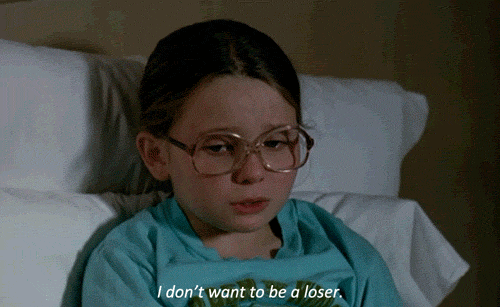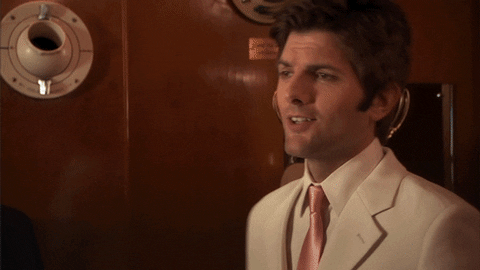
0 result
Well, we’re officially in February which means cupid is waiting just around the corner. In my experience — and I’m sure most of you would agree — relationships take work. Not just with your significant other, but even with parents, siblings, friends, etc. They take discipline and sometimes you have to compromise, even if you don’t want to. But it’s because the larger picture — the relationship — is more important than the small moments.
Investing in stocks isn’t quite the same, but it can be similar. Like relationships, perfection doesn’t exist. There is no investment strategy with big returns and no risk. Successful investing requires enduring the bad times to get to the good times.
But, love can make you do irrational things! And sometimes you stick around longer than you should. Falling in love is great, but when it comes to stocks: beware. Falling in love with a stock is almost never good.

While we like to tell ourselves we won’t fall in love, the truth is we can’t always help it. That’s why you should look out for the signs:
Our logical minds may say “of course, I’ll never let this happen” but the truth is that it does, even to the best of us.

So, why does it happen even if we don’t mean to? In this context (meaning stocks and investing), the psychology behind “love” can be best described by what’s called the “prospect theory.” Daniel Kahneman, a psychologist that focuses on the psychology of judgment and decision-making, won a Nobel Prize for his work on this exact phenomenon.
Prospect theory attempts to explain how people actually behave and stands in contrast to “expected utility theory,” which predicts outcomes from perfectly rational agents. Basically, Kahneman’s theory looks at how humans ACTUALLY behave in certain situations because, as we all know, humans are not always rational beings.
Kahneman, and his partner Amos Tversky, explained the main psychological effects that play into our tendency to fall in love with certain stocks:
😫 Loss aversion. For many people, the perceived disadvantages of giving up an object is greater than the benefits associated with acquiring it. Kahneman’s studies imply that the pain of losing is psychologically twice as powerful as the pleasure of gaining.
Ever listen to a professional athlete talk about how they really hate to lose? And how that motivates them? You’ve probably heard that more than you’ve ever heard the pros talk about how much they love to win.
Here’s another example. Think about the last time you found money in an old coat pocket. Pretty satisfying. Now think about the last time you lost an equivalent amount. Are those feelings equal in opposite directions? Not for me, the loss certainly weighs on me more than the finding feels good.
This isn’t rational at all, but it is how most of us humans feel.
🤑 The endowment effect. This is the tendency for people to demand much more to give up an object than they would be willing to pay to acquire it.
The Taylor Swift ticket fiasco has been in the news lately. For those unfamiliar, tickets for her tour were snapped up by resellers and relisted on secondary markets with massive markups.
I happen to know someone who was able to buy tickets at face value. She would never pay the massive markup to go to the concert, but she also won’t sell her ticket at the massive markup either. This is the endowment effect in action!
🙅 The disposition effect. The final behavior is the tendency to sell an asset that has accumulated in value but resist selling an asset that has declined in value.
You’ve probably heard the phrase (or even told yourself): “It’s just a paper loss until I sell”? That’s the disposition effect in action. Dollars are fungible. A loss is a loss. If things that have fallen in value were clearly more likely to rise in value going forward, investing would be very easy and I would have retired many years ago.

These cognitive biases that make us err in judgment are important to be aware of, but it’s not the only reason to avoid falling in love with a stock. The simple fact is that individual stock return dispersion is very wide.
The long-term average of the stock market is nicely positive, but that average is made up of a lot of losers while some winners are what carry the market. So, when you concentrate your portfolio on a single stock, or a few stocks, the odds are stacked against you. Of course, if you do pick a winner it feels wonderful. But it’s devastating if you don’t.
If that’s true, then why does anyone pick stocks? Because it can be fun! The allure of hitting it big is very powerful. We’re all human and life wouldn’t be much fun or interesting if we were always coldly rational.

I tell our clients that if you really enjoy picking stocks, set aside a small portion of your portfolio in a speculation account. But let discipline reign supreme. Keep it small, don’t send good money after bad bets if things don’t work out, and don’t believe your own hype if you nail a couple winners now and again.
If a small, speculative account allows you to satisfy that human part of you that enjoys the risk and volatility of stock picking and keeps you disciplined, consistent, and diversified in the rest of your portfolio, go for it! It’s perfectly rational to recognize your tendency for irrationality and put up some safeguards so the irrationality doesn’t sink you.
Love is a wonderful thing. I’ve been married to my wife for eleven years. There’s nothing I wouldn’t do for her, even irrational things! But for a stock? Nah. Stocks don’t love you back. Reserve your love for those that reciprocate. And treat your portfolio like a Vulcan would, with pure rationality, or as close to it as you can get.
Happy Valentine’s Day!
Things we’re digging: